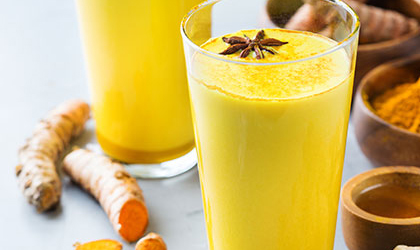
Whether you’ve experienced an illness, injury or sporting incident – giving your body the rest and recuperation it needs is the first step towards a healthy recovery. However, it can be difficult to know exactly what steps to take, from what to eat, how to rest, or when to begin moderate exercise again. So to help you get back on the road to recovery, we’ve put together this guide outlining everything you’ll need to know.
Recovering from exercise
Did you know that working out non-stop could actually stall your progress in the gym? Recovery is an essential part of any well-rounded exercise routine. Most experts would even argue downtime is just as important as the physical activity itself. Whether it's a strain or sprain, without the right recovery, you won’t get the results you want.
When it comes to post-exercise recovery, cooling-down is a must – no excuses. Think low-intensity, long lasting, static stretches. This will help loosen muscles and prevent soreness ensuing. Top tip: use a foam-roller to relax overworked and tense muscles. No time for a cool-down? Bad news: you could experience delayed onset muscle soreness (DOMs), which can be debilitating in its own right, and even more debilitating for your workout regime. Tart cherry juice (CherryMax®), Epsom salt baths, ice-baths, topical application of natural essential oils (After Sports Blend), and regular sports massages are oh-so-soothing for sore joints, too.
Rest days
If you’re a fitness fanatic, the idea of lounging on the sofa may leave you itching to get back in the gym. But we urge you to lose this ‘must-workout- every-day’ mindset; your body needs time to relax and repair at its natural pace. Schedule in a couple of rest days every week for optimal healing and restoration. Focus on getting good quality sleep too. During REM sleep (i.e. the stage of sleep when dreaming occurs), your body’s growth hormones work hard to rebuild and renew muscles after exercise. So make sure that you have at least 7-8 hours of sleep every night for the best chance of recovery.
Post-workout nutrition
After a physically demanding workout, your muscles are exhausted. They’re craving protein and pro-recovery foods, especially if you want to get back in the gym pronto. There are 3 R’s of recovery nutrition: refuel, repair and rehydrate. Within 15-30 minutes of exercising, you should refuel with fast-digesting carbohydrates (bananas, dates or chocolate milk) to provide the body with a quick pick-me-up. The next step is repairing your cells with a quality protein source; 25-35g of protein is a great mark to shoot for. Think 1 small chicken breast, 3 cups of cow’s milk, 1 cup of lentils, or 1-2 scoops of protein powder. Typically, you have a 30-minute post-exercise window to pack in the protein. Finally, don’t forget to rehydrate with plenty of water and electrolytes to help transport energy and nutrients throughout the body. Coconut water is a brilliant choice.
Recovering from illness
Cold, flu, stomach bug – whatever it is, illness can seriously scupper your exercise plans. But while you may be tempted to soldier on with your weekly workout regime, the real remedy is giving your body time to heal. Speed up recovery and fend off future sickness with these helpful strategies.
Take time to rest
The road to recovery isn’t complete without plenty of rest. Take that day off work, run yourself a hot bath, and curl up with a film. Don’t stress. Don’t feel guilty. And don’t use the time off to catch up on housework or chores. Remember, your body needs time to recuperate. Wherever you decide to convalesce, make sure there’s as much natural light as possible. Keep all curtains open and room temperature constant.
Nutrition for restoration
Your body works tirelessly to rebuild and repair itself when you’re ill. Food choices should be nutrient-dense; by fuelling your body with the correct nutrition, you’ll equip it with the essential building blocks required for healing. Vitamin C is a powerful weapon in your arsenal. Brimming in broccoli, strawberries and kiwis, this antioxidant supports your immune system against bugs. You’ll need to add protein-rich foods (lean meats, spinach, poultry and nuts) to the mix, too. Responsible for strengthening and repairing bodily tissues, protein is essential for getting you back on your feet. Oh, and don’t forget the power of spices either. Turmeric and ginger boast anti-inflammatory properties and will aid with recovery. Add these little wonders to your curries, smoothies and herbal teas.
The power of positivity
When you’re ill, the advice to ‘keep the sunny side up’ may be the last thing on your mind, but there’s mounting evidence to suggest optimism could have an overwhelmingly positive effect on recovery from illness. Just think: you may not be able to change the circumstances of your illness, but you do have the power to change your attitude.
Turbo-charge gut-health – Newsflash: despite killing nasty bacterial infections, antibiotics destroy your ‘friendly gut bacteria’ in the process, disrupting the status quo of your entire body. Make your gut happy and healthy again with foods like kefir, sauerkraut and kombucha or by taking a live bacteria supplement like Pro-Biome Complex 25.
Hydrate – Keeping yourself hydrated is especially important during illness since dehydration can exacerbate fatigue and weakness. Don’t forget herbal teas count towards your fluid intake, too!
Recovering from injury
Getting injured can be the stuff of nightmares for athletes and active people. Physical injuries put training on hold, jeopardise precious time at the gym, and even leave us feeling low. Thankfully, there are ways you can return to your exercise regime mentally and physically stronger than ever.
Seek supervision
If you’re injured, you need to obtain a proper diagnosis. It will help if you can decipher between that post-exercise muscle ache and a sustained injury. Just remember, you can’t ‘walk-off’ an injury in the same way you can muscle stiffness. Getting an understanding of how the incident occurred will be the key to preventing further injury. Work closely with your doctor, physiotherapist or personal trainer to establish an exercise-based rehab programme. This will help correct potentially harmful muscle imbalances and movement patterns, helping you get back on your feet pronto.
Fuel your body
Want to recover faster? You’ll need to think beyond Epsom-salt baths and physio sessions. Diet plays a pivotal role in helping you get back on your feet, particularly when it comes to tackling inflammation. As their name would suggest, anti-inflammatory foods really shine in this department. Healthy fats like avocados, oily fish (salmon, mackerel and sardines), and mixed nuts are all good sources to include. Be mindful that herbs and spices, especially turmeric and ginger, contain anti-inflammatory properties, too, so it can help to pepper (quite literally) your meals with these. Protein also plays an essential role in repairing damaged muscles; hence your convalescence calls for eating plenty of lean meats, legumes, nuts and dairy. Never underestimate the healing properties of berries, like strawberries and blueberries, which are packed with powerful plant compounds.
Stay positive
Remaining optimistic can be challenging if you’re in pain and feeling frustrated, but boy can it help. Don’t let a minor setback derail your otherwise healthy lifestyle. Remember, there’s more to you than your fitness or sporting passion. Why not find another hobby to lift your spirits while your injury heals? Volunteering, painting or learning a new instrument can be just as rewarding. You can learn more about recovering from a sports injury in our guide.
Protein for recovery
Comprised of long-chain amino acids, protein is an essential substance found in every cell in the human anatomy. In fact, except for water, protein is the most abundant substance in your body, which is why it plays a vital role in recovery.
Biological function
Protein plays countless roles in the body. Alongside giving you a strong structural framework and supporting cell repair and renewal (hence why it should be a staple of your post-workout meal), protein oversees essential life functions and aids with metabolic reactions. This compound also helps with proper fluid and pH balance, immunity, and can act as an energy supply, if required. Together, these responsibilities make protein one of the most invaluable nutrients for good health.
Post-workout protein hit
The words ‘exercise’ and ‘protein’ may conjure up images of ripped bodybuilders gorging on protein shakes and bars after working out. And to some extent, this trope holds up. In truth, everyone needs protein after exercise – not just the gym junkies. As you workout, you effectively break down your muscles. Hence, your body requires protein to support muscle repair, maintenance and growth. It’s also important to combine your protein source with fast-digesting carbohydrates, so your body can readily absorb the protein and transform it into muscle mass. Protein bars, a banana protein shake, or hummus and pitta are protein-dense, post-workout fuel.
Daily Dose
Energy levels lagging in the gym? It may be down to having too little protein in your diet. To power-up your workout, you should eat 0.75g of protein for each kilogram of weight. On average, men need 55g and women 45g of protein daily. That’s about 2 palm-sized portions of meat, fish, nuts or pulses.
-
Top foods for maximum protein intake:
-
Lean meats, seafood, eggs, dairy products, nuts, seeds, beans, pulses are rich sources of protein.
-
Large egg 6g
-
A chicken breast 53g
-
Canned tuna 39g
-
1 cup of broccoli 3g
-
Half a cup of raw oats 13g
-
1 cup of cooked quinoa 8g
Striking the right balance
Where possible, add protein to every meal, especially breakfast. This will knock down hunger, maximise your response to training, and provide fuel for exercise. However, too much of a good thing is never wise. And you can go overboard with the protein. Consuming vast quantities may lead to gastric distress and even kidney problems, so stick to the guidelines we’ve outlined here.
With these simple steps, you’ll be back on your feet in no time! For even more information on a range of common health conditions just like these, feel free to have a look further around our active lifestyle section on Our Blog.
You Might Also Like

Keri
Keri Filtness has worked in the Nutrition Industry for 19 years. She is regularly called upon for her professional comments on health and nutrition related news. Her opinions have been featured by BBC3, Prima, Vitality, The Mirror, Woman’s Own and Cycling Weekly, amongst others. She has also worked one to one with journalists, analysing their diets and health concerns and recommending changes and additions, where appropriate.
View More



